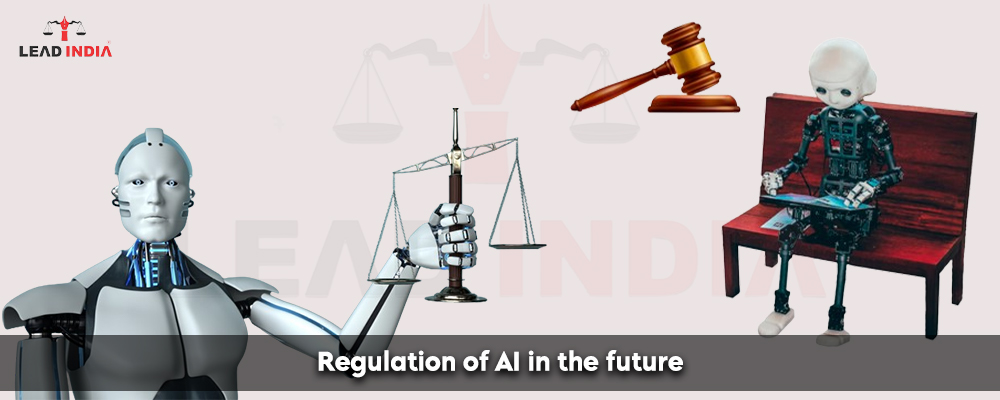India’s perspective on the regulation of artificial intelligence (“AI”) is still unclear. In April of this year, the Ministry of Electronics and Information Technology indicated that the government has no intentions to develop a special law to control the country’s AI growth. However, by early June, it was clear that the government would regulate AI, if only to safeguard digital users from harm, most likely through the proposed Digital India Act. In this regard, MeitY’s re-articulated attitude was probably inspired by developments in the European Union in May that established the world’s first harmonized laws for AI systems, which are based on the level of risk they represent to safety, livelihood, and rights.
Although AI encompasses multiple sub-fields and approaches, AI policymakers are mostly concerned with automated decision-making or machine learning (“ML”) systems that are algorithmically managed. Even when narrowed down, significant regulatory issues exist when advanced ML algorithms share key traits with human decision-making processes. For example, there may be concerns about the underlying system’s possible responsibility, especially if data processing causes harm. At the same time, especially for those affected by automated decision-making processes, the greater opacity, improved capabilities, and uncertainty connected with the deployment of AI systems may result in a variety of new legal and regulatory difficulties.
Need A Legal Advice
The internet is not a lawyer and neither are you. Talk to a real lawyer about your legal issue

Regulation of AI
- In 2018, the NITI Aayog launched the National Strategy for Artificial Intelligence #AIForAll, which included AI research and development guidelines for healthcare, agriculture, education, smart cities and infrastructure, and smart mobility and transformation. According to the strategy plan, “India, as the world’s fastest-growing economy with the second largest population, has a significant stake in the AI revolution.” The goal of #AIforAll is to improve and strengthen “human capabilities to address the challenges of access, affordability, shortage and inconsistency of skilled expertise, effective implementation of AI initiates to evolve scalable solutions for emerging economy; and attempts to address some of the world’s concerns via the lens of artificial intelligence, whether through application, research, development, technology, or responsible AI.
- The DPDP Act: On August 11, 2023, India’s President signed the Digital Personal Data Protection Act, 2023. This Act takes effect immediately and covers the processing of digital personal data in India, regardless of its original format, and can be used to address some of the privacy concerns associated with AI platforms.
- Information technology (intermediary guidelines and digital media ethics code), 2021: The Information Technology Rules (Intermediary Guidelines and Digital Media Ethics Code), 2021 (IT Rules 2021), issued by the Government of India under the Information Technology Act of 2000, provide a framework for regulating a variety of entities, including social media intermediaries, OTT platforms, and digital news organizations. These rules went into effect on May 26, 2021, and will be modified on April 6, 2023.
- Draft Policy for the National Data Governance Framework: On May 26, 2022, the MeitY announced a draft National Data Governance Framework Policy (NDGFP). This strategy intends to modernize and improve the government’s data-gathering and management procedures. The primary goal of the NDGFP, as defined in the draft, is to create an ecosystem in India that supports AI and data-driven research and businesses by developing a comprehensive dataset repository.
- Developing key standards: The Ministry of Electronics and Information Technology has established AI committees tasked with reporting on AI progress, safety, and ethical issues. Similarly, the Bureau of Indian Standards, India’s national standards organization, has formed an AI group that is now drafting Indian standards for the sector.
- Rules against deepfakes: Deepfakes are digitally modified material such as movies, sounds, and images made with artificial intelligence. Because of its hyper-realistic character, digitally manufactured media has the potential to ruin reputations, create evidence, and weaken faith in organizations. India presently lacks explicit laws covering generative AI, deepfakes, and AI-related crimes, despite the government’s announcement that necessary legislation is in the works. Currently, numerous sections within existing statutes provide both civil and criminal remedies.
Lead India offers free legal advice and online information, in addition to other legal services. We provide a forum to speak with a lawyer and ask legal questions. Lead India’s solicitors can help you with any legal difficulties. Lead India’s solicitors may assist you with any legal issues. Lead India also provides free online legal help in India. In addition to giving online legal assistance, Lead India allows users to ask specialist questions for free.





 Talk to a Lawyer
Talk to a Lawyer